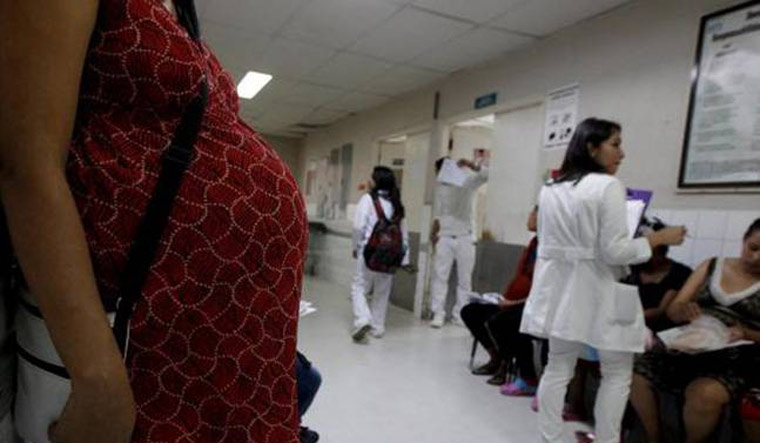According to data disclosed by the Delhi health department in a recent RTI reply, only one in ten abortions in the city are reported, while over 50,000 termination of pregnancies have taken place in the last five years. This is essentially due to a lack of data on the number of maternal deaths resulting from abortions. Although abortion is legal in India and is regulated under the Medical Termination of Pregnancy Act, the lack of awareness about it and the stigma attached to it, have led a number of women resort to unsafe and non-medical methods of abortions which prove to be fatal and life threatening. A woman can safely terminate her pregnancy upto 20 weeks of gestation under the supervision and guidance of one or two medical practitioners and for those who want to terminate it beyond 20 weeks, must seek approval from the courts.
Discussing on this subject at the recently concluded Mumbai Obstetric and Gynecological Society's (MOGS) first conference of the year, which focused on sexual and reproductive health, Dr Bharti Maheshwari said that a large number of women even in urban India are unaware of their rights to abortion and that there is a desperate need for educating women on the right and wrong of medically supervised abortion in India. The conference, held in Mumbai, coincided with World Health Day on 7 April.
Dr Bharti Maheshwari is a professor and head of the Department of Obstetrics and Gynecology, Muzaffarnagar Meical College, and the chairperson of FOGSI MTP committee.
Excerpts from the Q&A session
The number of women succumbing to death due to unsafe abortions still remains high in India. Where are we going wrong?
Unawareness about the legalisation of abortion services according to MTP Act 1971, social stigma, lack of trained providers at the mother's nearby place and the desperation to take opinion and services from untrained persons contribute to the reasons. Also, because of the Pre-natal and Pre-conception diagnostic Technique Acts, the need for formalities and documentation is a deterrent for approved service providers (obstetricians). They, specially private practioners, then hesitate to provide services. That's why still eight per cent of women are dying due to unsafe abortion
Tell us about the significance of the medical method of abortion
It is easy to take and doesn't require hospital admission or other cumbersome procedures. The confidentiality is maintained and this method is easily available.
According to reports, the number of qualified practitioners who provide services is far less in comparison to the number of women who need such services in India. In short, the skewed doctor:patient ratio is alarming. As per the law, medical method of abortion can be practiced only by those who are qualified for it. How do we handle this situation? Also do you agree that Ayush doctors must be allowed to provide medical abortion services if they are trained in it?
If the medical abortion process goes even slightly wrong, it can result in life threatening complications such as ruptured ectopic, hemorrhage, sepsis etc. and can have serious morbidities like PID, infertility etc. That's why I reiterate that only lawfully permitted trained personnel who are postgraduates and qualified must be allowed to perform the procedure. No non-MBBS individual must be given the permission even if there is a shortage of trained doctors. Because then it will be injustice to the patient. The need of the hour is higher awareness among people on the use of contraception so as to avoid unwanted pregnancies.
But if the government must train paramedics or non-MBBS staff in conducting medical abortions, what are the things to be kept in mind, according to you?
One thing is clear. Abortion is legal in India for various other reasons, except for sex selection. According to law, pregnancy can be terminated till 20 weeks. As the gestational age increases, complications also increase. So if the government has to train staff into carrying out the abortion correctly, then it is a must that they first confirm the gestational age properly, so as to rule out ectopic pregnancy preferably by USG, records of cases must be accurately maintained, and distribution of medical methods must be permitted only from PHCs, CHCs, and hospitals. But this option must cease once the shortage of qualified and registered MBBS degree holding medical practitioners is over.



